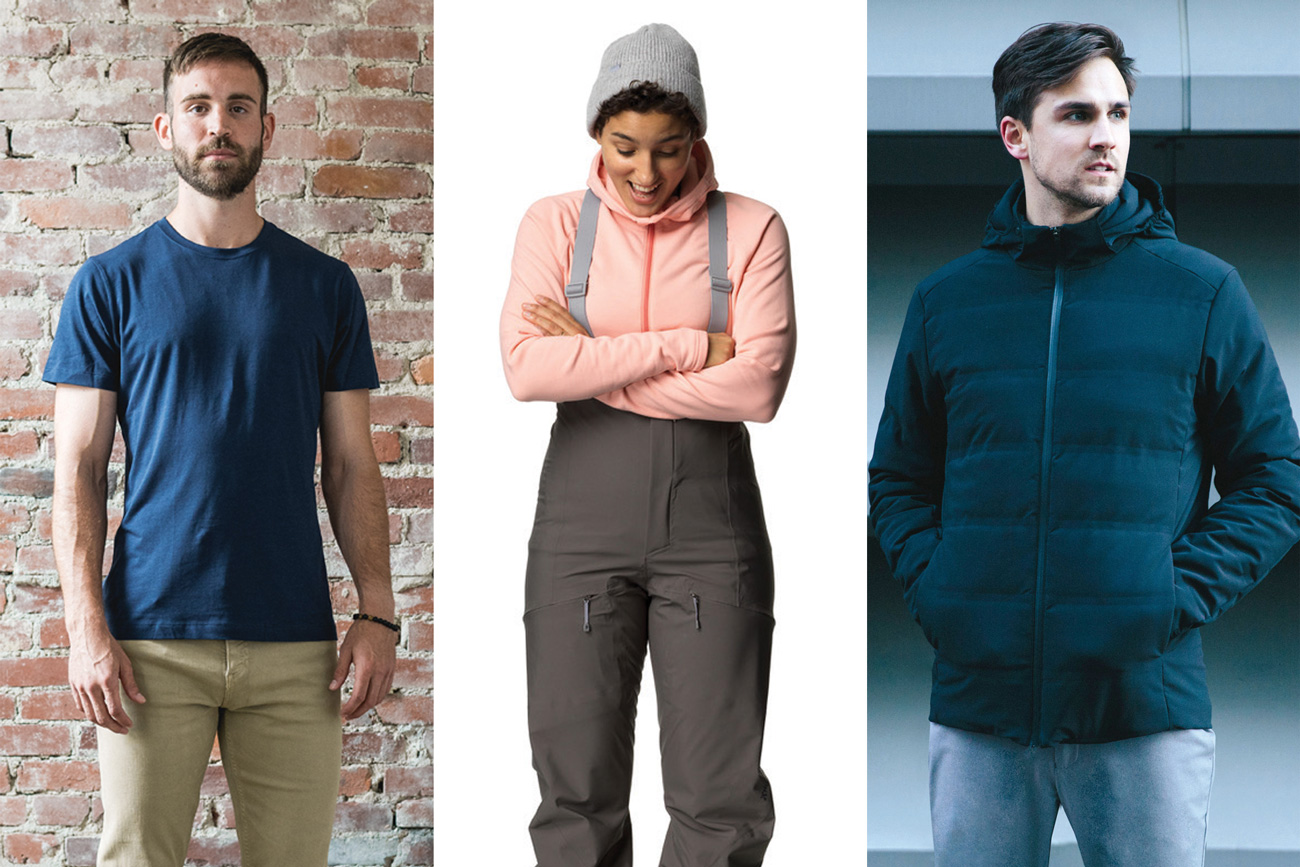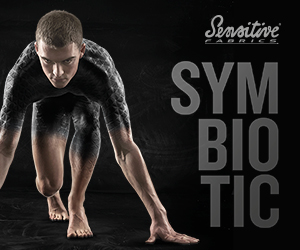Small Companies, Big Ideas
Niche Firms Are Finding Traction Through Differentiation in the Apparel Space.

In an industry that can be dominated by huge conglomerates, small – and even tiny – companies are standing out by presenting innovative ideas. Here are three notable names currently on our radar.
Revtown, Pittsburgh, PA
What makes Revtown unique?
Henry Stafford, CEO: “It starts with a really high-quality product at an affordable price – $79. But we also believe that jeans should be sustainable. That means they last wash after wash, but it also means that we are committed to clean denim production. One hundred percent of all waste is recycled, and our denim is sustainably dyed using shrimp shells, orange peels, and nut shells – saving energy, water, and using less chemicals in the process.”
Tell me about some of the unique materials you use.
“One thing that we learned from our time [previously working] at Under Armour is that it always starts with material and fabric. What we found was Decade Denim, which is our signature and trademarked fabric made from premium Italian yarn and infused with four-way, dynamic stretch, and constructed with the strongest fibers. Products look and feel like a high-end pair of jeans, while they fit and perform like an athletic pant.”
What do you have for the upcoming season that illustrates the brand’s unique perspective on denim?
“We just launched our women’s lineup in late September. We put out a call for real women via our customer database, social channels, and website and used them as the basis for building the product. We had women of all backgrounds, from fitness instructors, photographers, chefs, and YouTubers just to name a few.”
Comfort and fit can be secondary in denim. How are you addressing that and how does it tie to your mission?
“Our jeans won’t dig into your waist or cut off circulation or crush your crotch. We’ve even had some people tell us they work out in them when they’re on the go and in a pinch; they’re just that flexible. With a background in athletic apparel fit and comfort and durability, it felt that this hadn’t translated into the denim industry. It’s also why we created our ‘Digital Tailor’ tool, which allows customers to enter their personal data and it sizes them up to 95 percent accuracy.”
Houdini Sportswear, Nacka, Sweden
What makes Houdini unique?
Eva Karlsson, CEO: “We are proud of having a collection where 100 percent of the fabrics are either made from recycled/renewable material, can be recycled/biodegraded or are Bluesign-certified. We have set a goal of having our collection 100 percent circular by 2022. For FW2019, 63 percent of our styles are circular.”
Tell me about some of the unique materials you use.
“First, there’s our circular shell program where we work with Japanese fabric supplier Teijin to create shell fabrics that can go around in a recycling loop. Our Lana Series is a woolen shell layer that is waterproof by construction and uses no DWR or membrane. The biodegradable fabric is created by treating a tight woolen knit with water and heat, creating a super dense weave that doesn’t let water, yet breathes like your favorite wool sweater. Houdini gear does not have to look technical, it just has to be technical.”
What do you have for the upcoming season that illustrates the brand’s unique perspective on sportswear?
“For FW20, we are launching the Mono Air series, the latest iteration of fabric based on Polartec’s Power Air concept. It’s a fleece specifically designed to combat the problem of micro fiber release into rivers and oceans.”
Your mission is “Houdini is a group of friends on a mission, always guided by our core values: Do good, play hard, push boundaries, have fun!” How does that translate into what you create?
“We often say that people feel unrestricted in our gear, kind of like they can go do anything they want and the clothes would just work. When we find partners, whose values resonate with ours, we tend to hold on to them. With Polartec, that’s over 25 years!”
Ministry of Supply, Boston, MA
What makes Ministry of Supply unique?
Ministry of Supply Co-Founder, Gihan Amarasiriwardena: “We start with wardrobe problem statements, research deeply, and design and test garments that solve those problems. We’re on the cutting-edge of innovation: from shape-shifting textiles to coffee-infused, odor absorbing socks to artificial intelligence-powered jackets, we’re constantly pushing forward.”
Tell me about some of the unique materials you use.
“Born out of MIT, our goal is to use science and technology to make clothing better - better performing, fitting, and better for the environment. Our best-selling Apollo dress shirt features NASA-invented Phase Change Materials, originally created to regulate astronauts’ body temperature in space. In addition, the shirt uses a piqué knit fabric that has a honeycomb-like structure that provides coverage for the body, while letting air meander through its channels. The garment is 19 times more breathable than a traditional dress shirt. Additionally, instead of leaning on quick fixes like chemical washes, we reimagine the composition of every piece — from design to the fiber level. For example, to create wrinkle-resistant clothing, we call on the unique properties of polyester, which reacts to body heat to naturally release wrinkles.”
What do you have for the upcoming season that illustrates the brand’s unique perspective on sportswear?
“In 2019, we introduced the world’s first carbon-neutral dress shirt. Using our engineering backgrounds, familiarity with technology, and our own direct experience designing and producing garments, we are in a unique position to tackle this issue in a meaningful way.”
Should more apparel/textile firms include science into the equation for creating clothing? How is this part of your mission?
“To us, it’s not about using tech for tech’s sake — it’s about designing forward-looking apparel in a way that seamlessly integrates into people’s day-to-day, and solves everyday wardrobe problems. For example, we launched the first AI-powered heated jacket to market last year, and while we wanted to ensure that the technology was solid, we also wanted to be sure that it was just a great jacket.”


